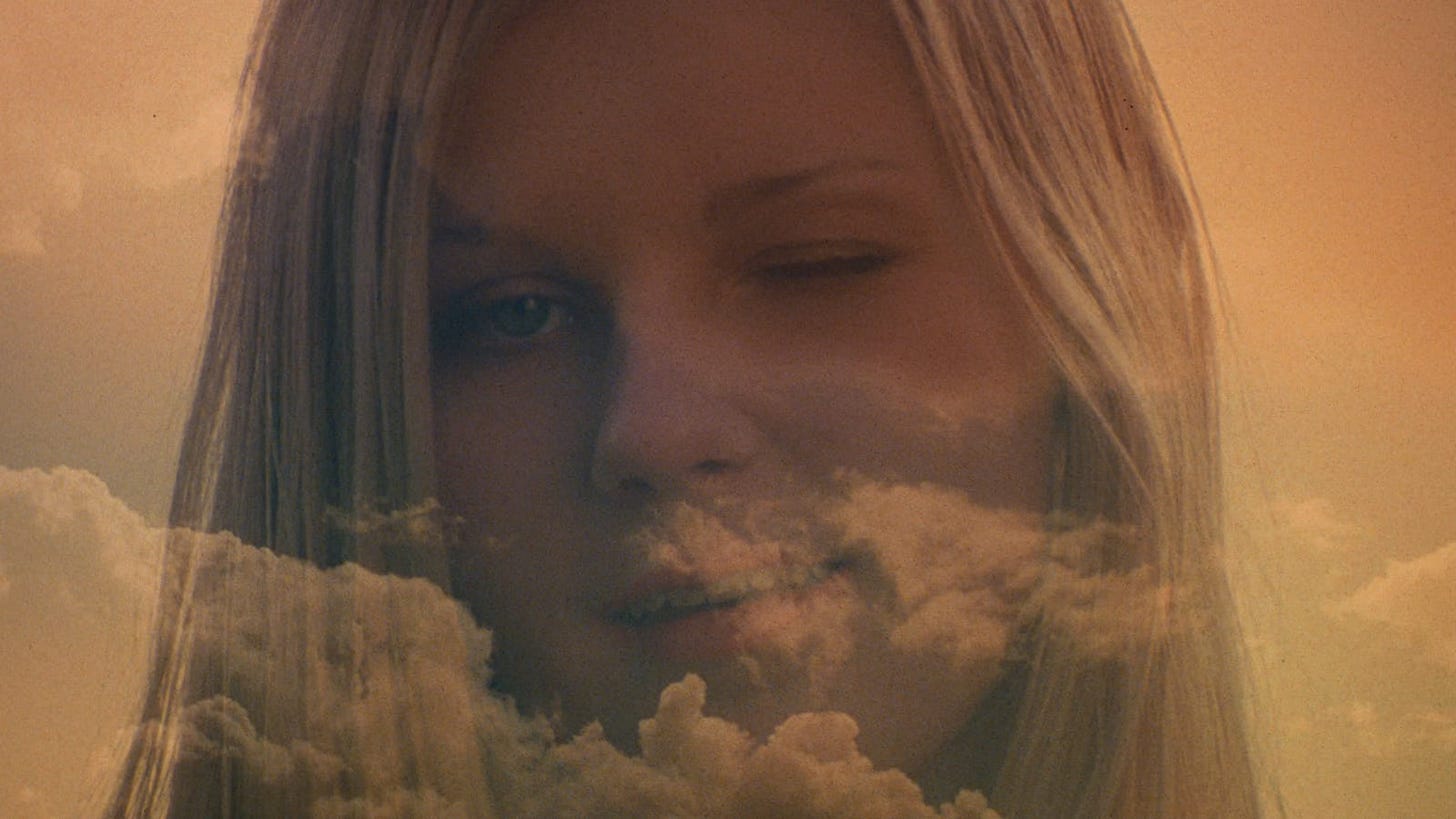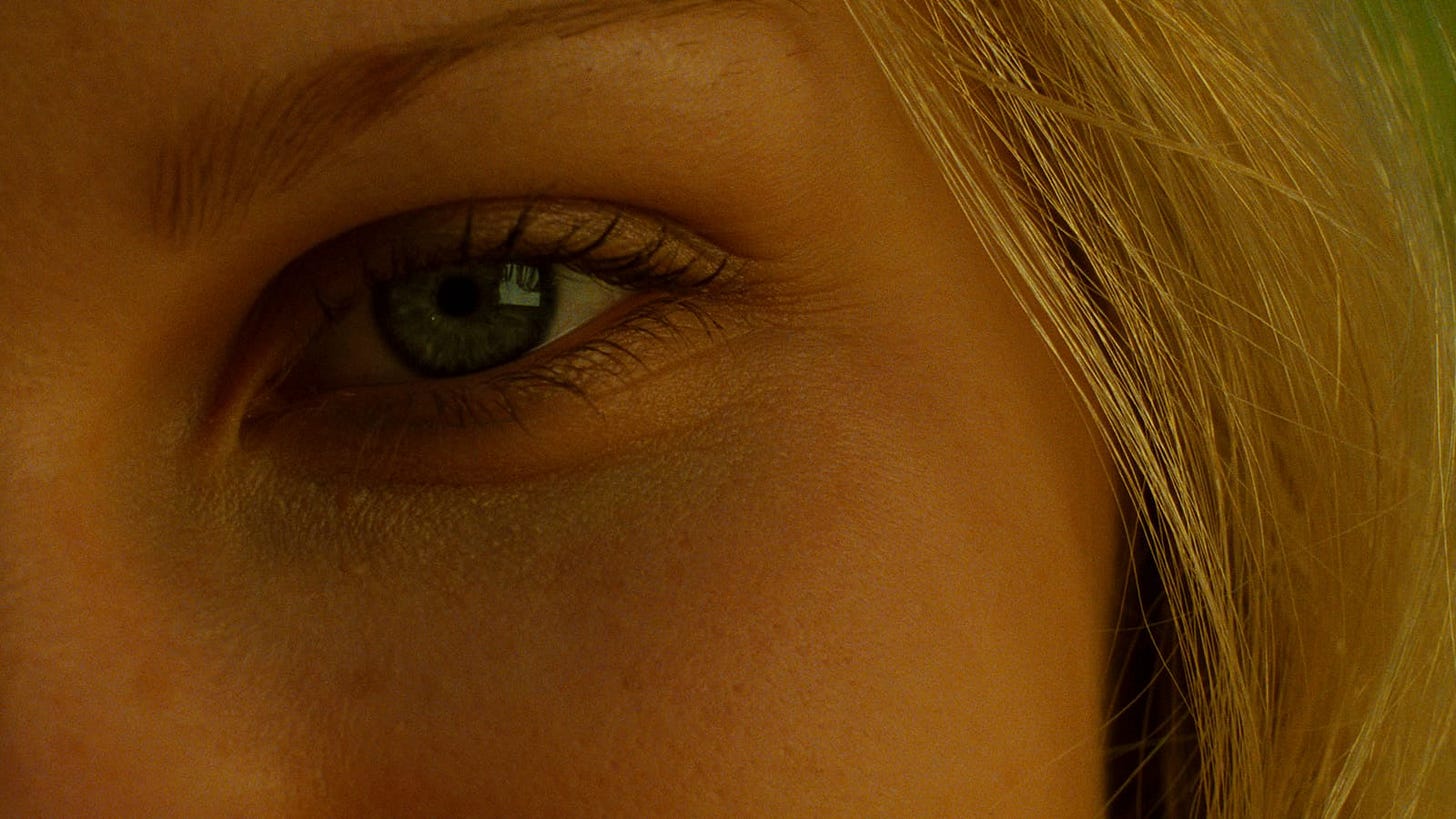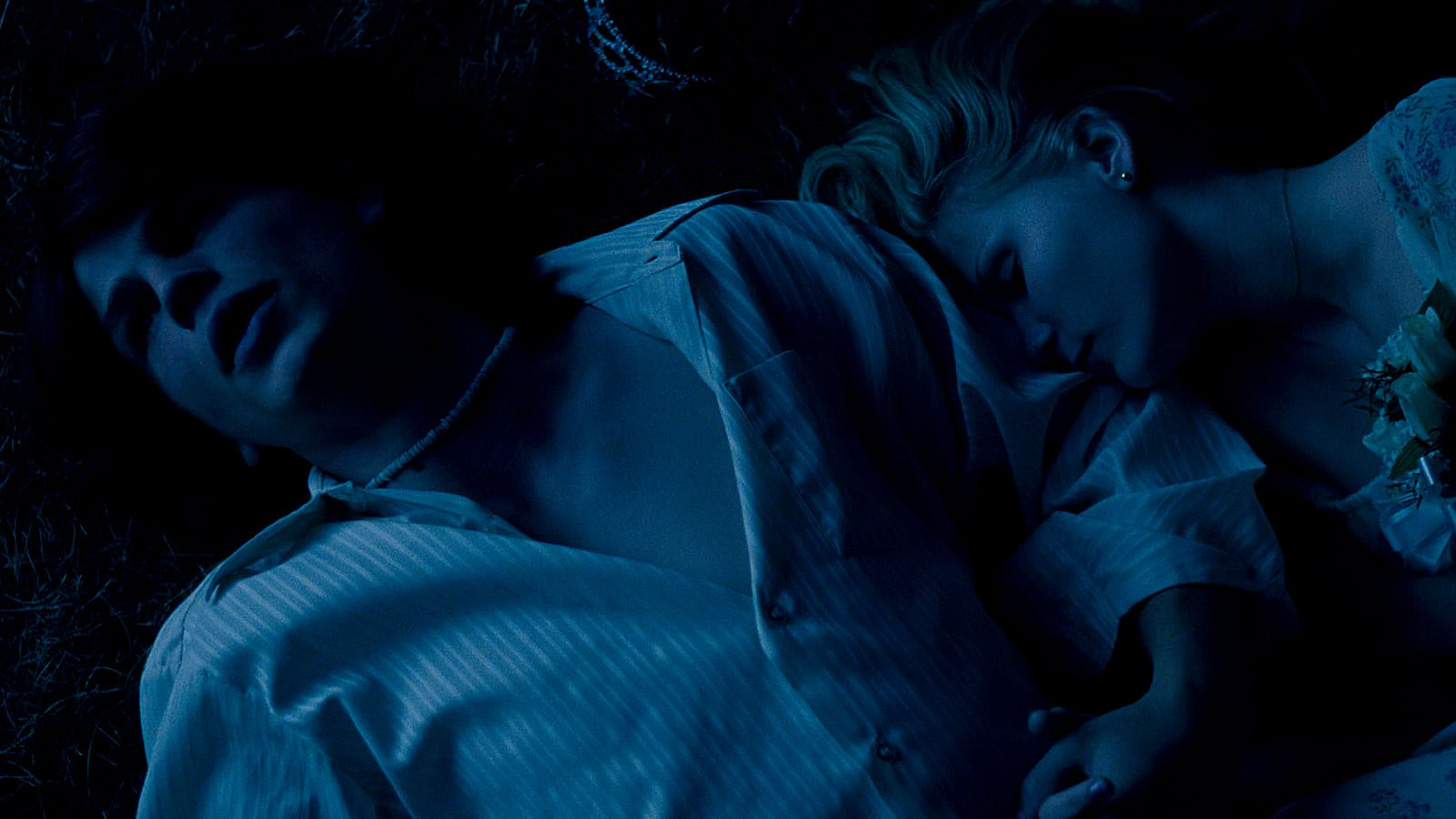Sofia Coppola: VIRGIN SUICIDES
An interview from the 2000 release of Sofia Coppola's debut feature.
MAY 2000—Sofia Coppola's The Virgin Suicides, which she directed from her own adaptation of Jeffrey Eugenides' novel, is a stylish debut. Less indebted to plot than to imagery, her first feature displays a keen, sensual eye (abetted by veteran cinematographer Ed Lachman). It's an absurdist tale about several neighborhood boys who recall one summer when the mysterious teenage Lisbon girls (the central "stone fox" played by Kirsten Dunst) come into their lives, then out again, as the title suggests, haunting their memories forever.
There's placid atmosphere in the master shots of the suburban settings (a misspelled "Grosse Point," Michigan) and the attention to smaller details. (Coppola has a fondness for the folding of young limbs; the flexing of boy muscles; close-in shots of tender girl feet.) Coppola, notoriously, acted in Godfather III (1990) when Winona Ryder dropped out of her father's film, and since then, she's pursued other things, including photography and starting her own fashion line, Milk Fed, A short film she considers only a warm-up, Lick the Star, taught her what she didn't know about production, and after being handed The Virgin Suicides by Sonic Youth's Thurston Moore, she realized she had another artistic avenue to barrel down. Her first film shows the influence of contemporary art photographers who specialize in tableaux, such as Bill Owens ("Suburbia") and Tina Barney ("Theater Of Manners") and masters of composition and color contrast such as Takashi Homma and William Eggleston. (She cites the cinematography of Terrence Malick's Badlands as well.) A rarefied set of influeces, not to mention the artistic ferment provided by years of growing up in Francis Coppola's compound. In conversation, some of Coppola's answers drift, but she's offhandedly funny, and winningly, her pronunciation of "pictures" approximates "pitchers."
It much be strange for so much time to have elapsed between making Virgin Suicides and it hitting theaters. You've been talking about this film since Cannes 1999.
Yeah. It's like Groundhog Day. It's the same kind of thing, y'know. Those situations are always weird. Because you're already nervous.
I talked to an actor-director the other day who was ready for his martini—he'd done sixty-seven television interviews in a row, six or seven minutes at a bite.
Oh my god. Oh that's awful.
Since this movie is about memory and nostalgia, here’s a strange conundrum: Does the meaning of the movie, your memories of it, shift after all your explaining and others explaining it to you? Is it now a different movie in your head?
It's interesting how someone says, I thought it was about this, and someone else says they thought it was about something totally different. The interpretations are interesting to hear. That's what enjoyable about making a film, hearing people talk about it and get different things from it. You feel like you have some form of communication. It's really hard for me to describe it. That's why I chose that form to communicate.
A conversation I had with the Canadian filmmaker Atom Egoyan, he said that until The Sweet Hereafter (1997) every movie he made, the publicity was like psychoanalysis, talking through the ideas that he had until then tried to keep intuitional and emotional. You're going to spend three years with something, it ought to remain mysterious to you until the end of the shoot.
That's true. You do. I remember not thinking of these things consciously. You just feel that's how it should be. Thinking about it too much seems to get in the way.
I love how much this film is about sensation: gestures, smiles, stolen glances, a bit of music, a brightly colored frame. There's a process of taking from a book to a film, but did you also refract it through notions about memory and nostalgia? Or are you just more interested in these textural elements instead of plot scaffolding?
I was always more interested in how all these pieces fit together and create an atmosphere, y'know. Like a collage. I would make collages of photos and images and I wanted it to be like that. The book was sort of put together like that. It wasn't a straight, linear narrative. It was about collecting little bits of evidence and memories. Memories and fantasies and piecing it all together. Those were the impressions the book gave me.
Sometimes a fixation on fashion or decor can smother a story, but the 1970s stuff here is nicely balanced. And you worked with Nancy Steiner, who was the costume designer on Safe, another remarkably controlled near-period piece. And you worked with Todd Haynes' editor, too—
I loved Safe. I knew Nancy from videos I had worked on with friends, but because of the costumes in Safe—they were so subtle and restrained. It was period but the 1970s could have taken over, been about that. That's a whole other thing.
What would have been the danger if you had gone farther in that way with Virgin Suicides?
I didn't want it to be cartoony. I wanted it to have a subtlety. the book was sort of elegant, and I wanted that quality even if it was set in the 1970s. And also hear [in the voice-overs that the boys] are looking at it from outside the 70s. The themes were timeless and could happen anytime. I wanted the period aspect not be about jokes.
The story's about memory and I wanted it to abstract and impressionistic.
It wasn't a specific year. The art department would say, we have to know what year
it is for the car, and I'm like, something around there. When you remember
being young, you get years mixed up and you get situations mixed up.
Do you still shoot a lot of stills? Does that affect your approach to shooting a feature?
Yeah, I do. Now that the film's been pretty much done, I've gotten back into taking pictures. I was just doing a show, actually. It was in Holland. I like snapshots. I took pictures on the film. I took the stills out of the fact more that there wasn't a still photographer [in the budget]! I'm always taking pictures, but I tried to approach the stills the same way. I like amateur photos a lot. I like the camera to have a kind of naïve awkwardness, the way the characters might take pictures of each other. And also the idea of memory. All the references are from photography. Ed Lachman and I sometimes would just flip through books.
I admire the shots that are a little off-kilter, a few degrees more acute than the eye might expect. There's a shot at the end where the boys are saluting the Lisbon girls' house, and one of them lights a lighter. The shot is somehow not quite right and begins to track away and yet emotionally it has the ideal weight. Ed Lachman's pictorial skills have never been in doubt, but was it important to have someone that experienced in order to do shots like that and have them function properly?
Well, since it was my first film, I wanted someone experienced, y'know, like all first-timers. He was really cool, even though he's done a lot of movies. He's not stuck in his way, he's very open to doing things. He'll try things. What I most liked was that he was open to how I wanted to do it. I asked him, I want to put the camera, I would put my snapshot camera down, not to correct it all the time, do it how it's "supposed to be done." He was open to that. he didn't over-correct it.
Was there a concern then to use snapshot-like focal lengths, like a 35mm-50mm?
Yeah. It was more about the framing, I think. We tried to not move the camera, or the least amount possible. Usually because of budget! I guess I also wanted to have it always feel like you're watching from across the street.
It's nice to see a Steadicam-less movie from a young director.
I know! I love Goodfellas, too, but...
It's like accumulating footage for a rock video when folks do that.
Yeah. There's a time and a place for it, but...
The compositions alternate the studied and the offhand. Are there photographers, not necessarily a direct influence here, but that you admire?
I actually collect photographs. My mom started me; she gave me my first one. I like Philip-Lorca diCorcia. I have two of those.
He's got the same idea of studied and offhand: diCorcia captures these great expressions in his street photography, yet he's got so many lighting sources making the frame superreal and surreal at the same time.
Yeah, those are cool. Just the other day, I met Nick Waplington. I love "The Living Room."
The "Safety in Numbers" book is amazing--the three cities he travels to, capturing the teen faces, but also the suburban façades.
The real close-ups? Yeah, yeah, yeah! I know that one. I like his pictures. Takashi Homma and his suburbs. I like his details. He always photographs girls. He likes them, but not in a creepy way.
Nowadays it almost seems the great art photography is being duplicated or exceeded in fashion advertising and layouts, with photographers doing both, like Juergen Teller—
I love Juergen Teller! Yeah, those worlds overlap.
There's more art to hold the eye there than in the average American independent film.
Don't you think? I like those photos.
And music. Everyone's using music for nostalgic or sentimental effect, and cheap pop always has its power. One thing I seemed to hear will watching is that you were using vinyl: there are audible needle drops.
Yeah, all the 1970s music was vinyl. You noticed! It's worth making a movie when people get into the same things that you do. I think you feel different when you hear vinyl, but it also reminds you of when there were records. How important records were to your identity when you were young. I think subconsciously sound is so important. When I was working with Richard Beggs, the sound designer—I realized how you change so much in a world, the details, down to putting twinkles in when Lux winks. He gave Scott Glenn's priest squeaky shoes going up the stairs. All the little things. Then you get more ideas from thinking of all the details in context.
You've got a sweet score by Air as well. Does any film you can think of have what you consider an ideal soundtrack?
I love the score of Lolita.
That's a brassy one.
Yeah, but the first song, the opening shot of her foot? Has this really tragic love, almost sappy love song. It's really good. Perfect music... I like the Ghost Dog soundtrack. I really wanted to have a score. I didn't want wall-to-wall 1970s songs. I love their music, this heartbroken love sound. I knew I wanted ELO and I knew I had to have "Magic Man," but my music supervisor was a couple years older, he knew Air. And Air had never done a movie, I had never done a movie, neither of us had any bad habits, so we hoped something good would come out of it.
Back to stills: while I've heard of directors like Bill Bennett ("Kiss or Kill") shooting his own stills, Kubrick just had shots taken directly off the negative. He didn't want to have work that was from another eye, misrepresenting the scene.
I want to do that. It makes sense to take your own shots.
Are there any films that you liked or reacted against in their depiction of teenage girls? I loved how Kirsten Dunst is radiant yet a picture of perplexity at the same time here. From exuberant to brooding in a snap.
I definitely could relate to them, having been a teenage girl. I think there's something weird, teenage girls, when you were one. I think in Jeffrey's book, he had empathy for them, he loved them. But I think because I was closer in age that they could be sitting around the room in their underwear and it had a sort of intimacy that I don't think makes you feel like you're intruding in their world.
The story is both about looking and being transfixed.
Uh-huh. I liked using actors who hadn't acted before. One of the girls, who plays Leslie, the oldest, I've been photographing her since she was five or something. She's one of my best friends. I love her, she doesn't change in front of the camera. She was really my prototype for the Lisbon girls. I asked her to be in it, she said okay. She has a smart-ass quality that you can't really get someone to do.
Tell me some more about the offhandedness you learned from still photography.
Whenever I take pictures, It's usually the ones that were in between shots, the mistake I always pick as the best one. Just rolling, something would happen. Chelse Swain, I don't know if you know which one she was, shorter, and she would always do these kind of eccentric things on the set. Whenever I could film that, it was my favorite. She would be wrapping rubber bands around a stuffed iguana, just in her own world. What's interesting are the things that girls that age do. I don't know what I've seen that depicted teenagers accurately. Sixteen Candles was good, but there weren't a lot of things we could relate to. I couldn't relate to the movies where the actors are approaching thirty and playing teenagers. It's just so not what that is like.
Some festival reviews reduced Virgin Suicides to plot. They didn’t get the mood, they think it shifts somehow in the later parts into a different, less satisfying film.
People do want a plot. I'm more interested in atmosphere. The story's about memory and I wanted it to abstract and impressionistic. It wasn't a specific year. The art department would say, we have to know what year it is for the car, and I'm like, something around there. When you remember being young, you get years mixed up and you get situations mixed up. Especially at the end when they see the girls. You don't really comprehend the whole thing, just sudden details. It's not a whole memory, it's just pieces.
The word "dilettante" didn't start as a pejorative, it used to mean someone who had the time and interest to dabble in many artistic pursuits. Which you’ve gotten to do. Do you want to make a lot of films and also continue exploring all sorts of things?
I always thought that word was negative. I've been doing this for so long, and I had a photo show I just finished. I'm just happy this is coming out. Even when you're talking about it, you're still involved in it, reliving that story. In May, I'm going to take a vacation and I'd like to take more pictures and write. I only want to make a couple in my lifetime. I don't want it to be like a job. That's not the reason I want to make movies. I hope I find another story that's personal. There are so many movies out there, I don't want to just put stuff out. I've been going to Tokyo a lot the past couple of years. I'd like to shoot something there just because I like the way it looks.
A different version of these two interviews appeared in Cinema Scope 3. Images via The Criterion Collection.






